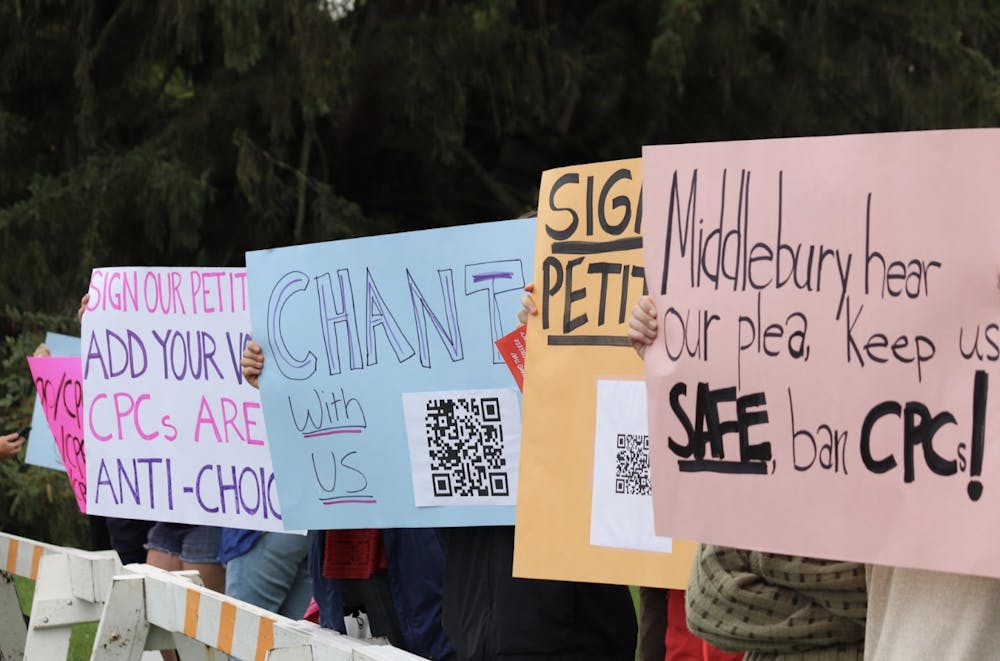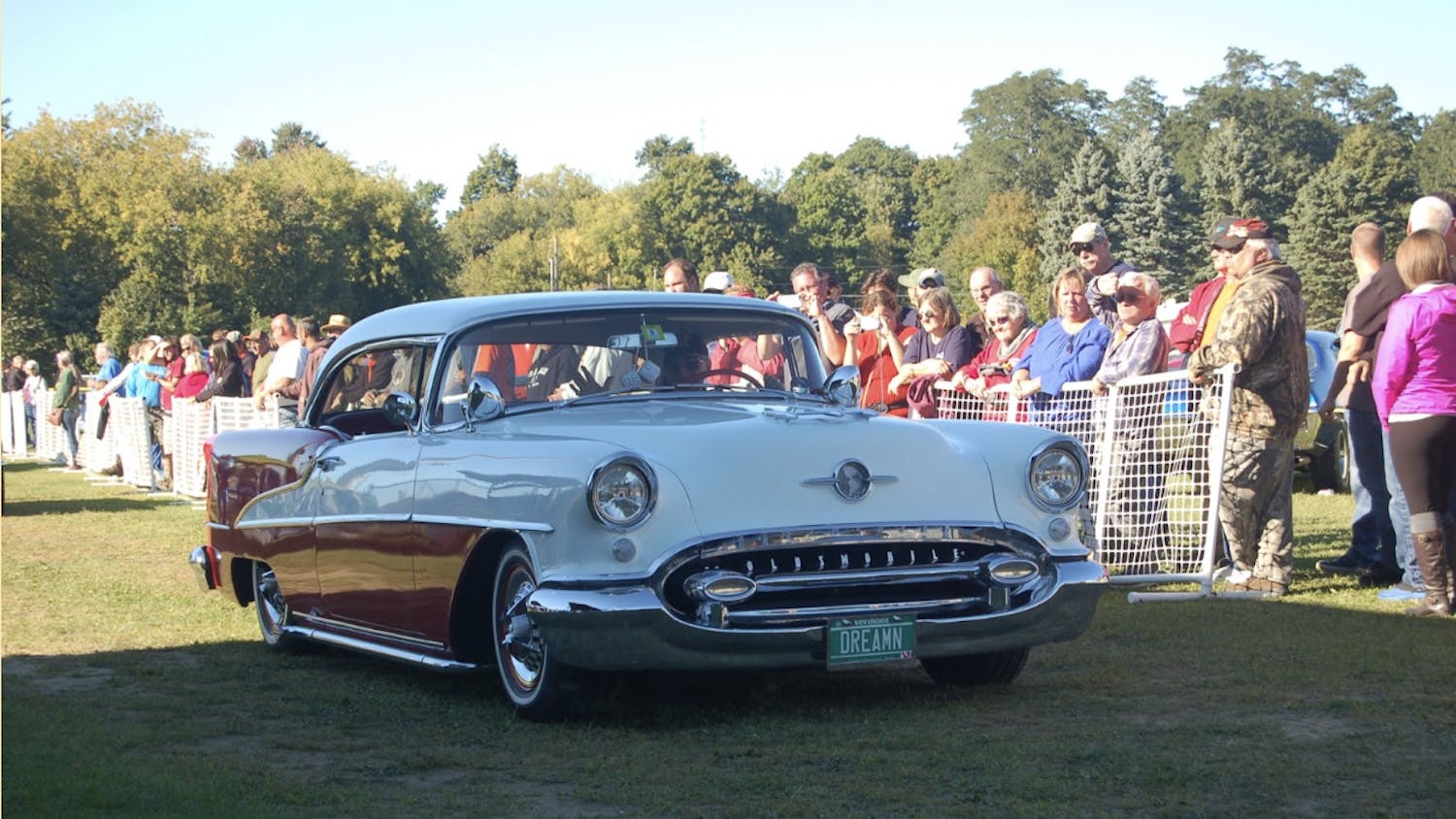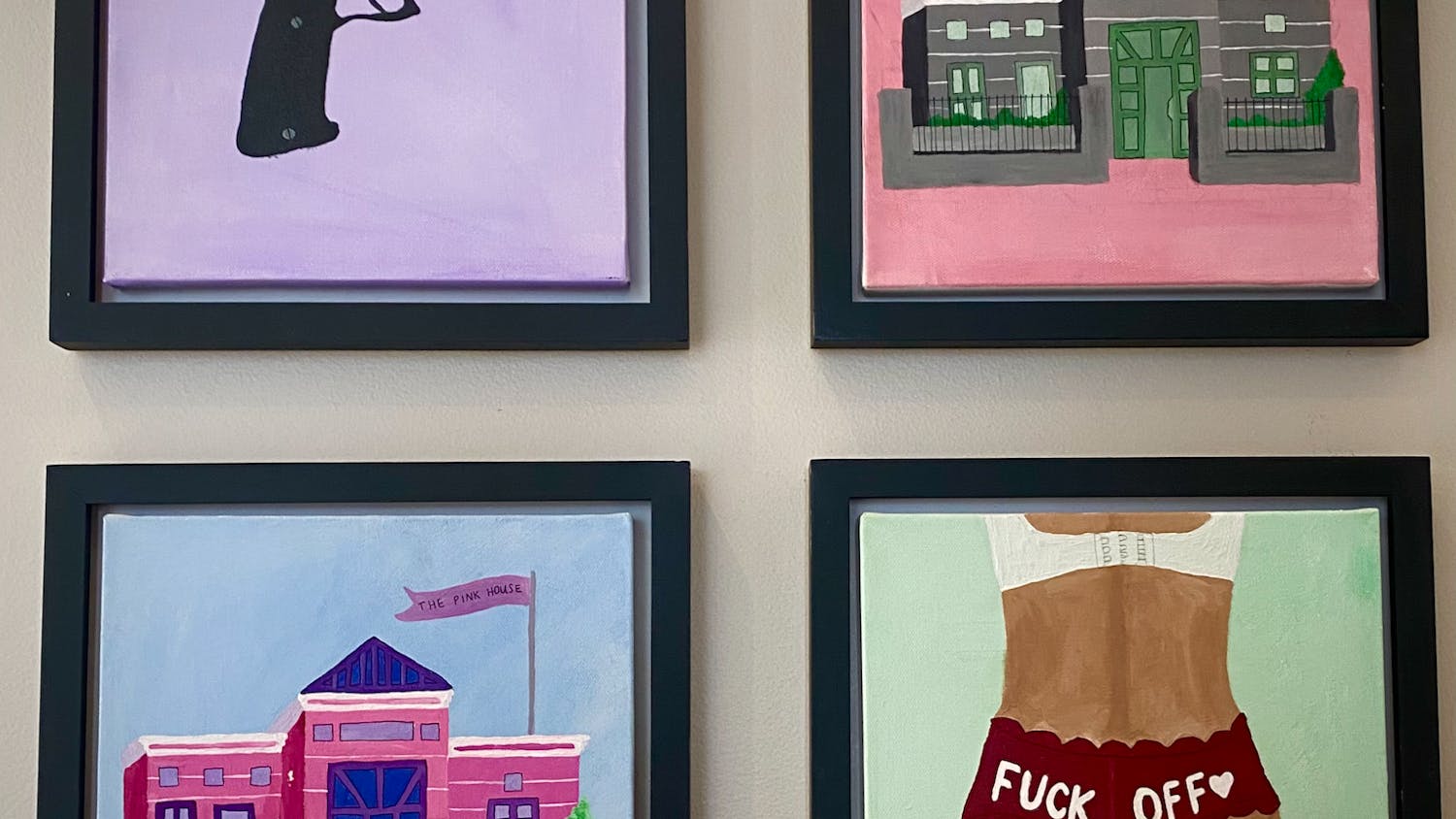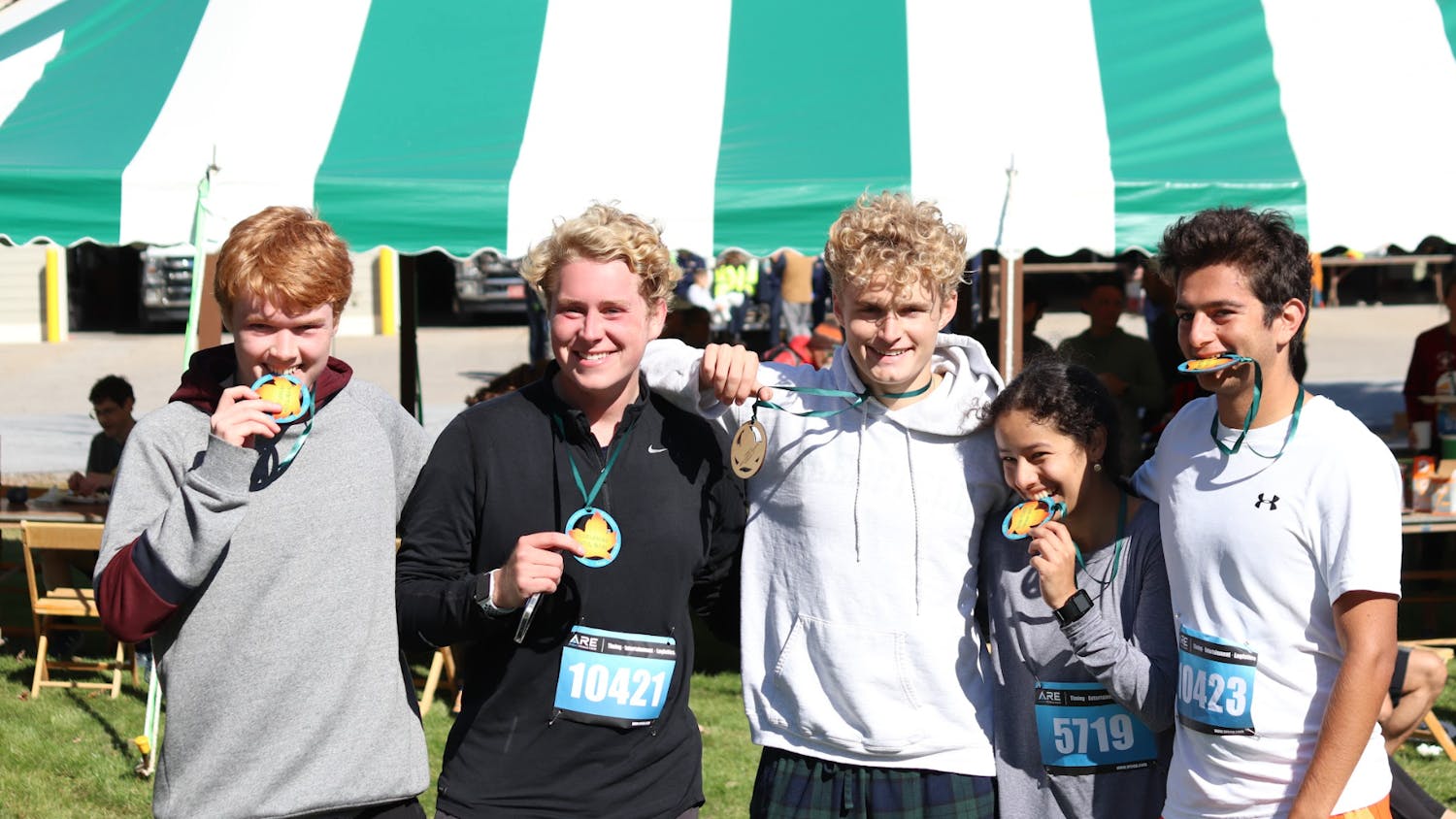Around 30 students organized outside The Feminist Resource Center at Chellis House on Tuesday, Sept. 20 and marched to McCullough Lawn to protest The Women’s Center’s participation in the Student Involvement Fair.
According to materials handed out by organizers at the event, The Women’s Center, currently located in the former Middlebury Planned Parenthood at 102 Court Street, is recognized as a Crisis Pregnancy Center (CPC). CPCs are anti-abortion facilities that disguise themselves as abortion clincs. The Planned Parenthood in Middlebury closed last May, making the closest locations to campus those in Rutland, Vt. and Burlington, Vt.
Elissa Asch ’22.5 and Bella Cady ’22.5 were co-organizers of the protest. Asch said she became engaged with CPC research and activism through the Public Feminism Fellowship, a program sponsered by Chellis House and the Gender, Sexuality and Feminist Studies Department. After the Supreme Court overturned Roe v. Wade this summer, Asch founded the NESCAC Coalition to Ban CPCs.
The NESCAC Coalition to Ban CPCs wrote a petition to gain support from NESCAC schools to ban CPC advertising and involvement on campuses. The Middlebury Coalition saw The Women’s Center’s participation at the Student Involvement Fair as an opportunity for protest.
The student protest was regulated by “Demonstration Regulations” in the Middlebury Handbook, which requires that students submit an event scheduling request, meet with Public Safety and Events Management to review Middlebury policies and adhere to certain times and locations determined by the college for their demonstrations.
The students were designated a protest area by the college on McCullough Lawn, where protesters held up posters and handed out zines with information about CPCs.
According to Julia Ferrante, associate vice president for public affairs, all registered non-profit agencies in Addison County, including The Women’s Center, can register in advance to participate in the Middlebury Student Involvement Fair.
“We do not select organizations based on their area of focus or viewpoints they express,” Ferrante said. “Middlebury unequivocally supports the right of speakers to speak and be heard, even if we as a community choose different values and vehemently disagree with a speaker’s expression.”
Assistant Professor of Gender, Sexuality and Feminist Studies Carly Thomsen pointed to the hypocrisy that while CPCs are entitled to be on campus for freedom of expression, student protesters are confined to certain areas for demonstrating.
“Any outside orgs coming to campus and circulating medical misinformation should not be allowed to do that, especially in this political moment when abortion is not protected federally, and there is no Planned Parenthood in town,” Thomsen said. “Middlebury still wouldn’t prevent CPCs from coming on campus? Seems extremely shortsighted to me.”
Some Middlebury students have reported being misled by information from the Center.
Cady first learned about CPCs while seeking reproductive healthcare in town and came across the free resources that The Women’s Center offered. Cady later learned from friends that The Women’s Center provided misleading medical information.
Scholars found that 80% of CPC websites contain misleading information, most commonly by establishing link between abortion and mental health issues, according to the protesters’ zine. The zine also notes that CPCs are not compliant with the Health Insurance Portability and Accountability Act (HIPAA) although they gather private medical information about their clients.
“It is unsettling that there are resources in town that are advertised as equitable, but they are not actually what they claim to be,” Cady said.
Thomsen recently co-authored an op-ed in The New York Times called “Pregnant? Need Help? They have an Agenda.” According to the op-ed, the number of abortion clinics have decreased in the U.S. from more than 2,700 in 1978 to around 785 today, while the number of CPCs has increased.
“CPCs are responsible for spreading anti-abortion sentiments, and for contributing to misinformation about abortion that leads people to think it’s far more dangerous and damaging than it actually is,” Thomsen told The Campus.
Thomsen has been involved with CPC research and activism since she was an undergraduate student in the early 2000s. Over the last 20 years, Thomsen said CPCs’ strategies to misinform and confuse have remained consistent. For example, they set up near abortion clinics or buildings that used to be abortion clinics in an attempt to trick and intercept people seeking abortions. However, CPCs have also broadened their reach.
“CPCs have become sneakier, more sophisticated in their strategies,” Thomsen said. “They are employing mobile strategies such as buses and vans that target marginalized communities. Technology has enabled new strategies, allowing them to target advertising in a more complex way.”
Joanie Praamsma, executive director of The Women’s Center in Middlebury, declined an interview with The Campus. Instead, she sent an email statement to The Campus in regards to the protest.
“The demonstrators certainly drew a large crowd of students that we may not have otherwise had the opportunity to interact with,” Praamsma said in the email. “Many of them that we talked with asked great questions and were genuinely interested in learning about our services and how we conduct them. I appreciated their desire to hear directly from us versus the extremely general, and non-specific to The Women’s Center in Middlebury, accusations that were being made. Unfortunately the ones leading the demonstration and the petition to ban our Center have refused, and continue to refuse, to speak directly with anyone at our Center about their concerns.”
According to Asch, organizers have not been approached by The Women’s Center.
“Organizers of this recent demonstration have never refused a conversation with, or been approached by, anyone from the local CPC (The Women’s Center),” Asch said in a text response to The Campus. “Students, faculty and staff have had detailed exchanges with the director of the CPC over the last several years. We have even provided her with the free service of going through their website and telling them exactly what is inaccurate. But none of these exchanges have encouraged The Women’s Center to change their deceptive practices.”
Thomsen believes that the concerns scholars and activists have raised about CPCs are not an issue of being pro-life or pro-choice, it is an issue of medical misinformation.
“I would say that everybody should oppose CPCs regardless of their positions on abortion,” Thomsen said.
Asch and Cady were pleased that the protest successfully raised awareness around CPCs at the college, and they hope that their demonstration will prompt the college to take action in the upcoming Student Involvement Fair this spring.
“In our community, people have donated to CPCs not realizing what they are, felt targeted by a CPC and had problems with CPCs in their work lives,” Asch said. “It’s clear that this is not just a Middlebury campus issue, and we look forward to working on this as a community issue.”




